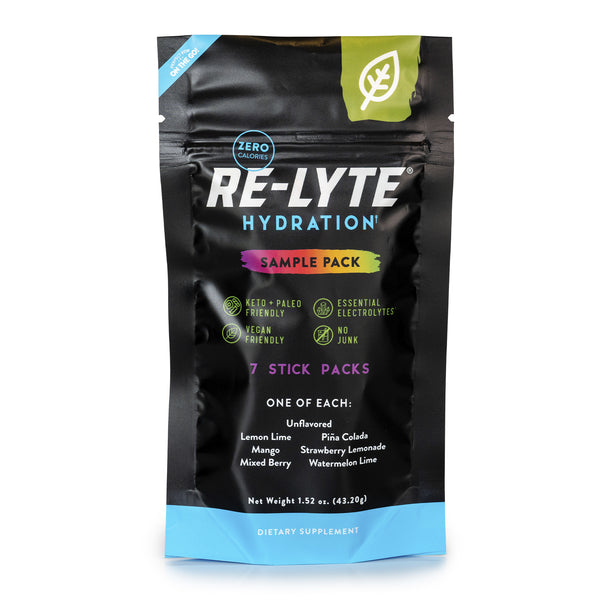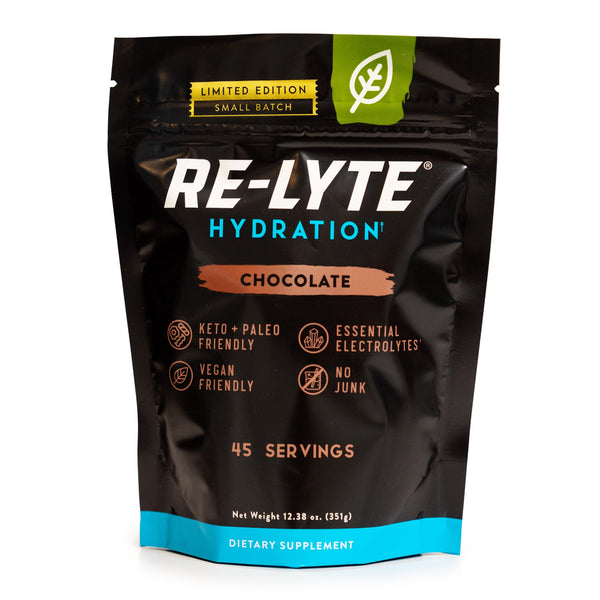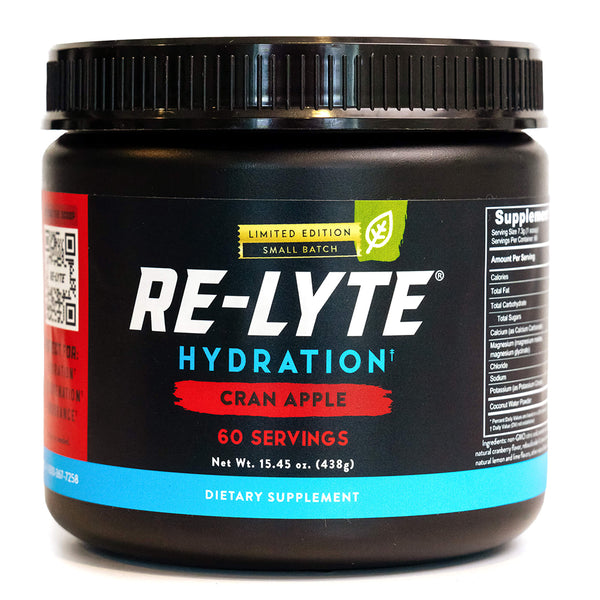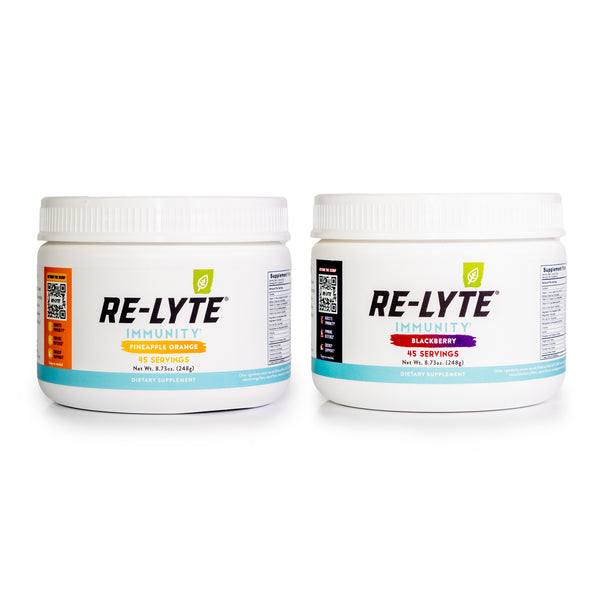Can Fasting Boost Your Brainpower?

Article at a Glance:
- Fasting has a wide variety of health benefits because the human body evolved to fast.
- A process triggered by fasting called metabolic switching impacts multiple signaling pathways that promote neuroplasticity and resistance to brain injury.
- Research in mice shows that intermittent fasting can improve learning and memory, and reduce brain inflammation.
- Fasting studies in mice also show that it can reduce the risk of brain diseases like Alzheimer’s disease, Parkinson’s disease, and stroke.
- When you fast, make sure to replenish electrolytes and connect with other fasters, so you have an enjoyable, beneficial experience.
Every day, it seems like there’s a new study or article published about the health benefits of fasting. And there’s a good reason we’re uncovering these benefits left and right— the human body evolved to fast.
Before agriculture came on the scene around 12,000 years ago, humans were hunters and gatherers. We lived the #HunterGathererLife for two million years. And periods of food scarcity were a pretty normal part of that lifestyle.
During that time in human history, being able to survive the stress of not having much food for periods of time was a very helpful trait to have. So that trait was carried on through the process of natural selection, and it triggered a bunch of beneficial, fasting-induced metabolic mechanisms in the human body that stuck around to this day.
What does all this have to do with your brain?
Well, just like the other parts of your body, there are certain metabolic processes triggered by fasting that could lead to better brain health. Right now, most of the available research on brain health and fasting was performed on animals. But there’s reason to believe that it translates to that lovely noggin’ of yours too.
This is Your Brain on Fasting
When you fast, your body switches from burning glucose as fuel to burning ketones as fuel. This process is called metabolic switching and it’s good for your brain.
A 2018 research review found that metabolic switching impacts multiple signaling pathways that promote neuroplasticity (the brain’s ability to form new neural connections) and resistance to brain injury. That means, hypothetically, it could have a positive impact in these areas.
But what specific brain benefits could metabolic switching and fasting have? Well, like I mentioned before, there aren’t many studies on fasting’s brain benefits in humans. But there are a lot of animal studies that give us a good idea of what fasting is capable of in the brain health department.
A 2018 study performed on mice found that intermittent fasting improved their cognitive function, including their learning and memory. It also improved the structure of their brains. They had a thicker CA1 pyramidal cell layer, which is an important collection of neurons in the hippocampus (the part of the brain responsible for learning and memory).
Fasting mice also had a higher expression of a protein called drebrin. This protein gets low in people with Alzheimer’s disease, so higher levels are considered a sign of good brain health.
Fasting mice had lower oxidative stress as well. That’s important since oxidative stress is linked to inflammation. And inflammation is linked to brain diseases like Alzheimer’s. In fact, a 2015 study in rats found that intermittent fasting is a good way to decrease the brain inflammation that typically comes with aging and triggers brain diseases.
There have even been studies that directly demonstrated that mice and rats who practice intermittent fasting are less likely to develop neurological diseases like Alzheimer’s disease, Parkinson’s disease, and stroke.
Other brain health highlights from intermittent fasting studies in mice and rats over the past 20 years show that fasting can promote the growth of new neuronal cells, increase the size of the hippocampus (the part of the brain responsible for memory and learning), and protect the brain from the aging process.
Sounds like a sweet deal, huh? All you have to do is skip a meal here and there and you could be on track to a much healthier, better-functioning brain.
Let the Fasting Begin!
As you probably know, there are a lot of different types of fasting. Intermittent fasting (the type of fasting used in most of these studies) is the most sustainable for a lot of people. It involves cycling between short periods of fasting and eating every day.
There are different ways to approach intermittent fasting. One popular approach is a 16/8 intermittent fast. In a 16/8 intermittent fast, you fast for 16 hours per day and eat for eight hours. But you can choose to fast for shorter or longer windows of time each day depending on your needs and lifestyle.
A lot of people also experience benefits from longer fasts, like 24, 48, or even 72-hour fasts. Some of these benefits include improved digestion, better blood pressure, and weight loss. But these fasts are more challenging to navigate for novice fasters. So if you’re thinking about trying your first extended fast, make sure to connect with experienced fasters who can support and guide you through it (like the wonderful community of fasters in our Fasting Facebook Group. More on that below).
2 Tips for Fasting Success
No matter what type of fasting you decide to practice, we have a couple of suggestions for fasting success. First and foremost, stay hydrated. That means drinking lots of water and replenishing electrolytes.
You get your electrolytes from food, so not eating can cause electrolyte levels to drop quickly and trigger things like fatigue, dizziness, nausea, headaches, and constipation. In fact, some people give up on fasting altogether because they feel “blah” while they’re doing it. Nine times out of ten, that’s because they’re not keeping their electrolyte levels balanced.
If you plan to incorporate fasting into your regular routine, we recommend keeping plenty of Re-Lyte Hydration on hand. It’ll keep your electrolyte levels optimized so you feel fantastic during your fasts.
We also recommend connecting with other fasters for advice, support, and some general “rah, rah, sis, boom, bah” love. It’ll make getting through your fasting periods a lot easier….and a lot more fun.
If you’re looking for a like-minded group of fasting fans to connect with, check out our Fasting Facebook Group. It’s a place where people who love fasting can chat, share stories, give advice and cheer each other on.
JOIN OUR FASTING GROUP ON FACEBOOK
Sources:
- Fasting as a Therapy in Neurological Disease— Nutrients.
- Intermittent metabolic switching, neuroplasticity and brain health—Nature Reviews Neuroscience.
- Chronic Intermittent Fasting Improves Cognitive Functions and Brain Structures in Mice— PLOS One.
- Effects of intermittent fasting on age-related changes on Na,K-ATPase activity and oxidative status induced by lipopolysaccharide in rat hippocampus— Neurobiology of Aging.
- Impact of intermittent fasting on health and disease processes— Ageing Research Reviews.
- Neuroprotective role of intermittent fasting in senescence-accelerated mice P8 (SAMP8)— Experimental Gerontology.
- Dietary restriction increases the number of newly generated neural cells, and induces BDNF expression, in the dentate gyrus of rats— Journal of Molecular Neuroscience.
- What to know about 48-hour fasting— Medical NewsToday.










